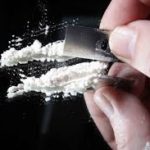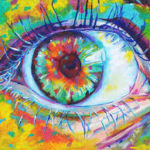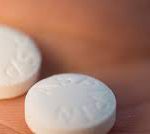We usually talk about addictions to substances (opiates, alcohol, whatever) or behaviours (gambling, porn, etc). But that misses the point. Addiction is entirely psychological, and I think it describes an attachment to a symbol that goes with the feeling provided by the substance or behaviour. The feeling and the symbol are coupled, bonded, and that’s a big part of what makes addiction so hard to beat.
Forget about “physical” addiction for now. I mean the withdrawal symptoms you get when you quit opiates. That’s not addiction; it’s chemical dependency. You also get withdrawal symptoms going off antidepressants or blood-pressure meds. And you don’t get any withdrawal symptoms quitting coke, meth, alcohol (unless you drink a huge amount) or, obviously, porn, sex, overeating, etc. You get psychological rebound, sure, but that’s not the same thing. It surprises me that people continue to confuse these different (but often overlapping) phenomena.
Once we see that addiction is purely psychological, we can break it down, and the categories most valued by psychologists are “cognition” (perceptions, thoughts, images) and “emotion” (feelings, urges, etc).
For some time now I’ve been thinking that the cognitive aspect of addiction is symbolic — entirely — it’s a representation of something. And the reason that symbol is so attractive, so strongly entrenched, is that it’s coupled with emotions like desire, excitement, pleasure, and relief (relief isn’t really an emotion; rather it’s the reduction of an emotion — generally anxiety). It is ALWAYS the case that cognitions and emotions hold each other in place. You think someone is blocking your goals, you feel anger: the anger highlights the image of this goal-blocking person, this shithead, and that image holds the anger in place. I’ve been writing about cognition-emotion coupling for decades….literally dozens of journal articles. But for now, let’s leave the academic abstractions behind and get down to lived experience.
 With addiction, you think this thing, this substance (let’s say a few lines of coke) is valuable and special. And you feel the excitement of anticipation — soon I’m gonna have some. Then you feel the buzz, and doesn’t that feel great? Which strengthens the image, the conception, that coke is valuable and special. See how the thought/image and the feeling (both before and during) fuel each other? Which is why it’s so hard to say No thanks, not tonight.
With addiction, you think this thing, this substance (let’s say a few lines of coke) is valuable and special. And you feel the excitement of anticipation — soon I’m gonna have some. Then you feel the buzz, and doesn’t that feel great? Which strengthens the image, the conception, that coke is valuable and special. See how the thought/image and the feeling (both before and during) fuel each other? Which is why it’s so hard to say No thanks, not tonight.
 So what does the addictive substance or act symbolize? To me, that’s the big question. The longer I practice psychotherapy with people in addiction, the more convinced I am that each person constructs his or her own scenario, vignette, drama, diorama — I don’t know what to call it — based on what went wrong or what went missing in childhood or adolescence. I introduced this idea last post, in terms of diving into the child self-narrative. Here I want to get into the details: what’s the narrative about?
So what does the addictive substance or act symbolize? To me, that’s the big question. The longer I practice psychotherapy with people in addiction, the more convinced I am that each person constructs his or her own scenario, vignette, drama, diorama — I don’t know what to call it — based on what went wrong or what went missing in childhood or adolescence. I introduced this idea last post, in terms of diving into the child self-narrative. Here I want to get into the details: what’s the narrative about?
Example: Helen says she can’t stop snorting coke. What does the coke mean to her? Through talking and remembering in therapy, we discovered that it means something similar to what cutting meant when she was about 12 years old. Her parents weren’t interested in her as a person. They wanted her to perform, be this charming, cute girl, be quiet and unobtrusive because Mom is trying to sleep — because she’s depressed, as usual. So they dismissed and scorned her spirited, creative, and needy self. Helen submitted to the good-girl role…and  she was achingly lonely. But when she went into her closet and cut little red lines in her forearm, she felt free, she felt vital, she was unobserved, she didn’t need or seek permission, she felt defiant, and most of all she felt in control of her own feelings. That’s what the cutting meant to her then. And that’s almost exactly what coke means to her now, decades later.
she was achingly lonely. But when she went into her closet and cut little red lines in her forearm, she felt free, she felt vital, she was unobserved, she didn’t need or seek permission, she felt defiant, and most of all she felt in control of her own feelings. That’s what the cutting meant to her then. And that’s almost exactly what coke means to her now, decades later.  She scampers into the bathroom, leaving the other ladies chatting over wine or coffee, and does a couple of lines. Again, she’s on her own, released, free, defiant, and in control of what she’s feeling. Now take that symbolic scenario she’s created, and graft it onto the feeling of the anticipation and then the feeling of the rush itself. That cognition-emotion linkage has been reinforced thousands of times. It’s not going to go away easily.
She scampers into the bathroom, leaving the other ladies chatting over wine or coffee, and does a couple of lines. Again, she’s on her own, released, free, defiant, and in control of what she’s feeling. Now take that symbolic scenario she’s created, and graft it onto the feeling of the anticipation and then the feeling of the rush itself. That cognition-emotion linkage has been reinforced thousands of times. It’s not going to go away easily.
Behavioural addictions like gambling and porn are no different. I’m the cocky guy who just might win big tonight, and won’t everyone be impressed. They’ll look at me with boundless envy and admiration (like they should have back in high school) as I strut down the corrdior  with my armful of chips. Now couple that image with the sheer excitement of not knowing how the next hand will turn out. (That’s a big deal for gamblers.) The image and the feeling fuse — possibly forever.
with my armful of chips. Now couple that image with the sheer excitement of not knowing how the next hand will turn out. (That’s a big deal for gamblers.) The image and the feeling fuse — possibly forever.
By the way: the feelings of excitement, defiance, energy, etc, that I’ve described so far have everything to do with dopamine. Maia Szalavitz calls it the thrill of the hunt. And what’s going on at the brain level is this: your nucleus accumbens and amygdala are stoked up on dopamine, so their connections with “association cortex,” where memories converge into vignettes and fantasies, form deep ruts…and those connections get strengthened every single time they get reactivated.
 A couple of my clients have combined drugs, sex or sexting, and/or porn into this incredibly artful (what else to call it?) ritual — a scenario in which they are desirable, desired, potent, free, and safe. The experience they’re addicted to is basically a fantasy of being both very good and very bad, nasty and safe at the same time — the dream fantasy of a child or young teenager. But here’s the thing: the components — the coke and the porn for example — are only valuable in how they contribute to this symbolic amalgam. What each offers, without that symbolic currency, is almost nothing at all.
A couple of my clients have combined drugs, sex or sexting, and/or porn into this incredibly artful (what else to call it?) ritual — a scenario in which they are desirable, desired, potent, free, and safe. The experience they’re addicted to is basically a fantasy of being both very good and very bad, nasty and safe at the same time — the dream fantasy of a child or young teenager. But here’s the thing: the components — the coke and the porn for example — are only valuable in how they contribute to this symbolic amalgam. What each offers, without that symbolic currency, is almost nothing at all.
I’ll end with one last example: my own. I recently developed a painful condition called sciatica, and I’ll probably need lumbar spine surgery in a couple of months to carve away the bone that’s squeezing my sciatic nerve. Don’t worry about me: this surgery is extremely low-risk and has very high success rates. I look forward to getting it done. But meanwhile the pain is…well…painful.
 So I’ve got a prescription for some pretty powerful opioids. And as soon as I pop one or two, the whole symbolic vignette from my days of addiction returns. I get to make myself warm and safe, I get to be taken care of, like when I was sick as a child — come here, Mommy, I need you — and I get to control all that with
So I’ve got a prescription for some pretty powerful opioids. And as soon as I pop one or two, the whole symbolic vignette from my days of addiction returns. I get to make myself warm and safe, I get to be taken care of, like when I was sick as a child — come here, Mommy, I need you — and I get to control all that with  these little objects — the pills — which are mine! (particularly handy if Mom isn’t feeling very connected). That symbolism is so much more powerful than the feeling the drug provides. Yet the drug does provide a feeling…a warmth in my stomach, a vague but familiar sense of pleasure. What I’m saying is that this feeling is pretty nice (though I know it will collapse into boredom soon enough), but its power lies in how it holds the symbolic scenario in place.
these little objects — the pills — which are mine! (particularly handy if Mom isn’t feeling very connected). That symbolism is so much more powerful than the feeling the drug provides. Yet the drug does provide a feeling…a warmth in my stomach, a vague but familiar sense of pleasure. What I’m saying is that this feeling is pretty nice (though I know it will collapse into boredom soon enough), but its power lies in how it holds the symbolic scenario in place.
I’m not worried about becoming addicted again. I’ve had three surgeries in the last decade (I’m actually incredibly old and held together by screws and picture wire). I went on and then off painkillers each time. I recognize the childhood fantasy, tailored, perfected, by years of efficient drug use. I recognize the feeling. Nice, but, as feelings go, if there were nothing else to it, I might prefer a back rub or foot massage. And I’m pretty much past being a slave to my attractions. I’ve had nearly forty years free of addiction.
 But man, do I ever get what it’s like, for my addicted clients, and for almost anyone fighting that so-powerful amalgam of thought and feeling: the fabricated scene, the sense of completeness, the revised reality, and the control you take (or at least hope for) — an entrenched (but fantasized) improvement over what it was really like to be young and scared, alone and helpless.
But man, do I ever get what it’s like, for my addicted clients, and for almost anyone fighting that so-powerful amalgam of thought and feeling: the fabricated scene, the sense of completeness, the revised reality, and the control you take (or at least hope for) — an entrenched (but fantasized) improvement over what it was really like to be young and scared, alone and helpless.
…………..
Please think of attending this one-day conference on novel and progressive ways to conceptualize addiction, highlighting harm reduction (and, in general, compassionate) approaches. It’s called Shifting the Addiction Paradigm. It will be presented by The Center for Optimal Living and partners, at the New School, New York City, June 7th. I’ll be a keynote speaker.
………….
ALSO PLEASE NOTE: The bug that was trashing some of your comments is now fixed. Please comment!
 Informed by unparalleled neuroscientific insight and written with his usual flare, Marc Lewis’s The Biology of Desire effectively refutes the medical view of addiction as a brain disease. A bracing and informative corrective to the muddle that now characterizes public and professional discourse on this topic.” —Gabor Maté, M.D., author of In The Realm of Hungry Ghosts: Close Encounters With Addiction
Informed by unparalleled neuroscientific insight and written with his usual flare, Marc Lewis’s The Biology of Desire effectively refutes the medical view of addiction as a brain disease. A bracing and informative corrective to the muddle that now characterizes public and professional discourse on this topic.” —Gabor Maté, M.D., author of In The Realm of Hungry Ghosts: Close Encounters With Addiction
Great read Marc. I totally agree. It is not the feeling so much that generates the pleasure and safety of addiction. It is the meaning it gives us in our lives. It is the character we get to play. How do you suggest people looking to move on from addictions begin to come to grips with these symbolic meanings? Do they try to simply move on? Incorporate acceptance(maybe mindfulness)? Would love to hear your thoughts.
Hi Will. Glad it clicked for you. Thanks. How do people move on? Isn’t that the million euro question! My sense is that you take a two-pronged approach: Unearth the roots of the symbolic scenario. Not with years of psychoanalysis, but with pointed, guided reflection on what it FELT like to be the kid building this fantasy to counter the emptiness inside or the gnawing terror of loss or punishment. Sometimes, once you’ve made the link, you can travel back and forth through time, as if through a wormhole in psychic space. I mean just before you call your dealer or roll up your bill for snorting, slide back to being a kid, feel it, just for a moment — you don’t have to stop (yet) — the task is to reflect: what am I after? what am I aiming for? what do I feel I need…and lack? I try to guide clients to explore that link. And second, yes, move on! Pull in practical advice, both cognitive tricks and social strategies, like: I wonder if there’s a time when you could call your dealer (or your doctor) who you say cares about you, and tell him/her that this stuff is killing you…and please, please don’t sell (prescribe for) me any more, even if I ask desperately — especially then. If calling is too hard, what about emailing? There are dozens of practical things to try, the key word being “try”….distract yourself, replace it with something, practice shifting attention away from IT…doing it quickly, before you get stuck.
So….a slow lane to make connections with the source and a fast lane to cut your use, even for a night at a time. And yes, mindfulness, self-compassion, tuning into the internal dialogue, bringing it out in the open… Try talking to yourself out loud. Lots of “present-tense” strategies that MIGHT work.
And timing is everything….Come back when you’re ready to change….don’t waste your money on treatment until then.
Well, super big question….a few grains of possible answers. Wish we knew, wish I knew, how, when, what, and with whom.
I think you are mostly right but are throwing out some important diagnostic and pharmacological babies with the symbolist bathwater. Because we offered naltrexone as well as opiate maintenance, we saw a few patients who started taking opiates for non-psychological conditions but found they had developed intolerable withdrawal symptoms when the condition disappeared, or when it continued but they didn’t want to keep taking opiates. You call this ‘chemical dependency’ as opposed to ‘addiction’ but once patients have decided that they really, really want to withdraw – or to try withdrawing if they haven’t tried before – it doesn’t make much difference to the treatment. The main difference is that once they get properly through withdrawal (which may not be for a month or two and sometimes longer) they don’t feel ambivalent about withdrawing unless they find that a persistent painful condition is difficult to control without opiates.
I remember a 30-ish married patient with a good job and no history of adolescent drug use who was given conventional doses of dihydrocodeine for a persistent cough. It worked well but when the cough eventually settled, he couldn’t stop the DHC without experiencing withdrawal symptoms that badly affected both his home life and his business life. He couldn’t withdraw because he hadn’t told his wife or employer about his prescription.
Another patient found that his adolescent experimentation with heroin provided the only relief from a mysterious abdominal pain that had remained undiagnosed and untreatable since childhood. I was actually able to prescribe heroin for him because of this well documented pain (one gram of pure diamorphine – about three days’ supply – cost him about $10) but no other opiate did the trick and he was desperate to withdraw but every time he did so, the pain returned. Whatever you call their condition, patients like these need both medication and support and only a non-doctrinaire (i.e. non 12-step) addiction clinic is likely to provide it.
The other implication is that if patients can’t withdraw using traditional techniques, they must be offered withdrawal under enough sedation to get through the worst when asleep and reducing doses of anti-withdrawal medication, including sleeping-tablets, after theyy wake up. The failure of most clinics to use these methods – by now tried and tested – explains why many patients are unable to try the benefits of depot or implanted naltrexone. Intention-to-treat NTX induction rates are commonly 50% at best when they could easily be 100%. The ‘no pain, no gain’ philosophy reflects Christian Puritanism rather than Christian Compassion.
Can I just say a big “amen” to the comment by Colin about withdrawal clinics refusing to use medications that just put people to sleep? I’ve never withdrawn from anything but alcohol, but I did that so many times I’ve lost count and anyone who has been with me can attest that it is horrific. My anxiety is out of control, and I have complex PTSD (you would too if you’d been raped four times and blamed by medical professionals for it) and my anxiety spirals out of control in withdrawal. Even with abstinence, daily meditation, yoga, a safe environment at home, and a cat, I’m still subject to panic. I’ve always argued the medical heroin would be the best medication for acute trauma and acute alcohol withdrawal. Just sleep through it until your brain can process it. It can’t process immediately. But no… they want us to feel pain as though that would stop us from drinking/using again. How did that work out? Not so well, in my experience.
April, thank you. This is so important and you convey it with such power. Your self-revelation seems really courageous to me. (There are details of my addiction that I’ve never shared because they still hurt too much, and shame me more than I think I can bear.) But it’s exactly this kind of telling — telling what we’ve been through, uncensored, unabridged — that really gets people’s attention and changes minds…and hearts. Yours is always a welcome voice on this blog, brimming with the kind of raw reality that usually gets painted over.
Colin, you are right to highlight the significance of withdrawal…and other physical/biological factors that make it that much more difficult to stop. I think you caught me being too glib by saying that addiction is “entirely” psychological. But of course psychological factors — appraisal, association, dissociation, avoidance, and especially emotion itself — are the intermediaries between the physical sensations (and realities) and the symbolic cluster that becomes the main (subjective) feature of the addiction.
In fact, the convergence of withdrawal feelings and the symbolic (mental) content is incredibly powerful. I know: I’ve been there. If I feel empty and scared without my whatever inside me, then how much worse do I feel when the world is…not only a reheated cup of childhood misery but also brimming with actual physical pain, cramping, overstimulation, etc, etc?! The FEAR of withdrawal (or of the return of pain) is such a huge factor, I’m sure you’d agree, that it often tips the boat one way or the other. I’d use the “camel’s back” metaphor, but it ain’t no straw.
Your message about using physiological agents, e.g., drugs like NTX, as well as anything else in the doctor’s toolkit, is absolutely right. And I often sidetrack it. I guess I do so because it’s often overstated or simply distorted. For example, George Koob doesn’t attempt to specify any distinction between psychological and physiological factors when he points to the “dark side” of addiction or the “antireward” system — as if it’s all one system
(https://www.ncbi.nlm.nih.gov/pmc/articles/PMC6135258/).
I say we have to keep these sources of misery separated in order to put them together with precision and insight.
Sorry to hear you are having to take painkillers. I grew very fond of them after surgery and dread facing the need to take them again.
I have now finished the research for my literature review and inadvertently / simultaneously completed an in-house case study (despite my reasonably enlightened best efforts to control it).
The Battle Royale game genre IS the crack cocaine of video games. This is because it borrows methods from fixed-odds electronic gaming machines. I have had two very tearful boys on my hands this morning.
I have a neuroscience question, my concern is that brain changes during adolescence become hard set due to the effects myelination and synaptic pruning. Would this not apply to changes that disrupt the influence of the PFC on the lymbic midbrain areas? Thus creating a set point that leaves a much greater predisposition to addiction? My professor who has been looking at brain training said that neuroplasticity regarding executive functions is overhyped and that lasting changes are not achieved in adulthood.
I have been reading your papers and your learning behaviour approach is infinitely more applicable than the alternatives. Good to hear it’s not a major threat to health, we need you to keep banging that drum to undo that inconvenient truth for the rehab industry. Tens of thousands of pounds later, being treated for “denial” I have found through my studies that I blatantly have been suffering from bipolar 2, just how blind can money make people!
Battle Royale game = Fortnite to most parents, the genre developed out of a “mod” to minecraft.
Will the Shifting the Addiction Paradigm Conference be recorded and made available online for people to view? I would love to see it but not able to attend. Thank you.
My talk will be videorecorded, and it should be available. I’ll try to find out when and how. Thanks for asking.
That would be great and I look forward to seeing it. Thank you.
Another great piece Marc. I had never put these component parts together. You make it so clear and it perfectly describes my personal experience. Thank you.
Yeah me too, with cigarettes, sugar, coffee, and narcissistic men. Understanding the mechanics of it makes it easier to put the brakes on for long enough to gain some control.
Marc, I totally agree, each person creates their own vingette. I’d stake my life on it. lol.
I’ve been listening to people for 25 years in counseling,that”s what I’ve heard.
All different vingettes, all based on a script(s) they created.
Scripts from something(s) that went wrong in childhood, or adolescence.
I work with people that get medicaid, and those treatment centers are not the latest nor the greatest, and the attitude is often “you’re an addict you don’t know what’s best for you”.
This attitude hinders people from getting better.
They are the only ones WITH the answers.
Self empowerment is the only way I see people out grow addiction. A person has to identify those script(s) and why, how when they took power.
I never went into management, and I’m so glad, as I have gained a wealth of knowledge from just listening. Never made a lot of money, but the knowledge I gained is beyond monetary value.
Marc, I will try to attend your speech if I can swing it. I live in hudson valley outside nyc.
Marc, this was an excellent read and I fully agree with you on this topic. I would love to attend the event in June but there is no way I can make it there for that one day. Do you know if there is any chance that I can purchase DVD’s or audio CD’s or pay to download recordings of the entire seminar?
Hello Marc,
Ah yes, symbols and how they tie to our beliefs and values. The flag (being ex-military) brings with it a host of emotions, both good and bad. A symbol of strength (personal training and body building for 24 years) brings yet a different wave, yet no less powerful than the flag. Each symbol tied to a belief or value … as are our daily activities. Look around a crowded room and you can see certain “beliefs” and “values” in each person with a quick scan.
Tie this to addiction. As most people (that I’ve talked with) used for many years (most 6-10) before they became addicted, is “using” simply not part of their own personal belief? Much like, although I don’t compete in body building anymore, I still make my shakes, I still lift, I still eat healthy, and so on … because those things became part of my own “personal identity.”
Perhaps, outside of whatever life stress the specific drug is helping with (as in my own research each drug type ties directly to very specific previous life events, much like people use SSRI’s to influence specific brain chemicals to reduce specific mental issues I suppose), could a “coke head” be much like a “muscle head?” In that part of the overall process simply helps to reinforce our own current identity of self?
Just thoughts on the idea. Wonderful post as always, and I’ll see you in New York!
Have a wonderful day!
Chad
Forgive me, I know that I probably have mentioned this before in a previous comment, however, long before I developed a drinking problem or drug problem I developed a “thinking problem” about drinking and/or drugging etc. The thought, image and/or fantastic imagination was the lure the preview, if you will, of what the experience is going to be like. Unfortunately, for me, the actual drinking ended badly and I never ever achieved the blissful escape that existed only in my head.
I mean if I knew, ahead of time, a party was taking place on Saturday night the excitement led me to drinking Thursday and Friday prior. “Getting high” led to me feeling so extremely low that in slaying my own demons became the ultimate goal. It was as if what things were good I was bad and when things were bad I was good, lows and highs, ups and downs much like a roller-coaster.
For understanding purposes only and “not to lay blame” but I did grow up in a highly dysfunctional and/or unpredictable alcoholic home. I’ve taken responsibility for my own impulses, actions and behaviors’. I’m able to more accurately observe the thoughts, images and/or fantasies within the confines of my mind without being distracted or “fused” to the ideas of escape. In many ways, my “belief” became the thief and instead of putting a substance in my mouth to steal away my brain it was the thought itself.
Images, symbols, and/or sounds play a huge role regarding behavior in our technological world, texting, snap chat, etc., where many are geared towards “instant gratification” immediate responses or disappointments’. I mean you are required, by law, to be a certain age before you can gamble at a casino yet babies have access to technological devices which impress and impact their young brains.
We are very much a society dependent upon technology even at the expense of our selves and/or relationships with each other.
Man am I late to the party commenting on this. First, you touch on one of my personal causes regarding the addiction discussion–that of the word addiction. It is simultaneously used to describe the emotional phenomena of psychological attachment and physiological dependence. These concepts need to be discussed separately because they are separate, though sometimes co-occurring, experiences. Other than that, of course it is what the substances/behaviors represent. I think addiction recovery has two parts. First is severing (or changing) the relationship to the substance or behavior that is problematic. This can be difficult, it certainly was for me. And this is ultimately where we put all the emphasis in defining recovery–on abstinence. But the real work is figuring out what the addictions provided to the wounded psyche and finding ways to provide them substantially, not temporarily through problematic surrogates. A huge problem with defining recovery simply as abstinence is that it ignores the most important aspect of the addiction as self-medication.
Marc, this is a great post. I took one of my men’s sex addiction recovery groups through your post and invited each to elucidate the “story” or vignette that was underlying their preferred acting out behavior. Then to see if they could connect that story to their particular history of wounding. It was a powerful group. The men who used the sex industry, the men who used porn, and the men who seduced strangers in nightclubs all were chasing different symbols. What got them high wasn’t pursuing or having the orgasm (because on that basis alone, all of these methods deliver orgasms). It was the symbol – “I’m powerful”, “I’m in control”, “I’m wanted”, “My needs matter – I don’t have to worry about yours.” The conversations were vulnerable. People really seemed to get that they chose their form of acting out to meet that deeper personal need. Thank you!
Marc, this probably isn’t helpful but I want to talk to you about your back.. I’m one of millions of people with a bad back. I went to a doctor for help but it only grew worse and worse. He told me I needed back surgery, though it might leave me with a permanent limp. Luckily a friend of mine who is an expert back surgeon asked to take a look at my records. He agreed that surgery would probably leave me with a permanent limp but said I might still have pain. He directed me to a excellent physical therapist who gave me a slew of exercises to do. In addition, I had to investigate and change every part of my life that put undue pressure on my back. For example, I bought a funky reclining chair the spreads my pressure out. My friend said that I should try all this before trying surgery because you can’t undo surgery. I did. And I was lucky — no surgery and my back is much much better. It’s been over 20 years. So, all I can say is try other avenues before surgery. I’m not saying the same fixes will work you but you might be wise to try some other things first.
BTW, I very much enjoyed The Biology of Desire and lend it to others whenever I can.
Thanks
tup
Marc,
Thank you for this informative and insightful blog post. I struggled with opioid addiction for years and even wrote a book about my experiences and my recovery. I’m also launching a website and blog soon.
It’s frustrating to listen to people make such misplaced and uninformed statements about addiction and the people caught in the death grips of addiction. I think my favorite is, “People shouldn’t use drugs in the first place.” I realize it is a narrow-minded observation. The perception that addicts or people suffering from addictive behaviors are simply “bad people” or “evil” is one I find offensive, not simply misguided.
What you wrote sheds a lot of light on why we seek out these highs in the first place. I honestly cannot define any event from my childhood that led me to seek control and safety. But I definitely sought the high from an early age. I am a rare example of the nature vs. nurture argument. My biological father was an addict but he was not in my life and we never even met. My adoptive parents were not drug users and rarely drank alcohol. Far from being abusive, they were loving and nurturing. And yet I was sneaking beers out of my dad’s walk-in cooler at his restaurant when I was 14 and getting high on pot and coke that same year.
And as you inferred in your post, this manifested itself in so many different ways in my life, predominantly with pills, but also with sex and porn. It is relieving in one aspect that there is something wrong with us, with me, on a psychological level because it is, as they say, a sickness. But at the same time, I feel that this enables me to make excuses for myself if I get high or indulge in porn…”That’s okay, you’re an addict – it’s not really your fault.” Is that valid or is that just my addictive mindset making excuses for me?
Anyway, I thank you again for your insightfulness and for sharing your journey of recovery and assisting those still struggling to find a way out.
George
Marc – You continue to astonish us with such frank and open discussions about your personal experiences!